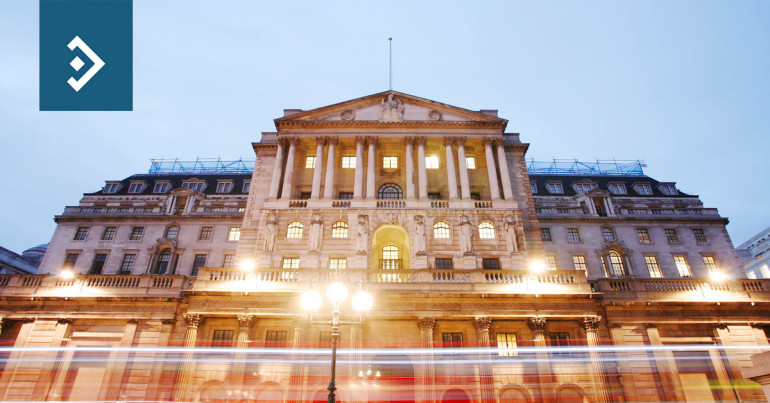
Hawkish Saunders wants more hikes
Morning mid-market rates – The majors
10th May: Highlights
- Unemployment set to rise as long-term prospects fall
- Inflation biting into entire economy
- Inflation spilling over into wage demands
MPC member voted for 50bp hike
He was something of a lone voice last summer when he voiced his concern over rising inflation. At that time, he was considered to be akin to the boy who cried wolf given the expectations being promoted around growth.
He was the first to spot the effect that rising energy prices would have on inflation and how emergence from the pandemic may unbalance the economy.
Yesterday, Saunders spoke of his continued concerns over rising inflation and how he believes that the country is not prepared for it to become embedded in the national psyche, a phenomenon that has been absent for close to forty years.
Historically, Inflation is seen as a by-product of wage demands made by militant trade unionists prior to the Thatcher years but the reality of today’s economy is vastly different.
The rise in inflation that is currently being tackled by the Bank of England emanates from the supply side of the economy and this is what is raising concerns about wage settlements that could launch the country into a vicious circle where CPI continues to rise in reaction to higher costs at the factory gate primarily driven by rising wages.
Saunders voted for a fifty-basis point hike in rates at last week’s MPC meeting, but the majority of his colleagues saw a continuation of the policy of hiking by twenty-five basis points as being sufficient.
The current base rate of one percent is still believed by Saunders as being well below the neutral rate and not only do rates need to reach that level, but they need to exceed it in order to effectively tackle inflation.
Former Bank of England Chief Economist Andrew Haldane is a man whose opinions are still well-respected. He also spoke yesterday about his concerns about rising prices. His worst expectations for inflation have been surpassed, and he believes that not only could it surpass the current predicted rate of 10%, it could easily last far longer than expected and may still be a concern in the lead up to the next General election.
Opposition Leader Sir Keir Starmer began a high stakes game of bluff with the Prime Minister yesterday. He promised that if he were to be fined following the Beergate scandal, that he would resign.
Starmer has been accused of putting undue pressure on the Durham Constabulary, which is investigating an event which may have broken Covid rules.
Were this to happen, the Prime Minister would see the pressure on him to resign increase, although given his recent comments he may still prefer to fight on.
Yesterday, Sterling continued its recent fall versus the dollar. It reached a low of 1.2261 and closed at 1.2332. The rate of its fall appears to be slowing, although price action now points to a degree of resistance around the previous low of 1.2365 which may be difficult to break in the short-term.
Considering your next transfer? Log in to compare live quotes today.
Current FOMC favours Powell policy, others not so sure
While Powell, as Chairman, is the figurehead of the Federal Reserve’s action of monetary policy, he is one vote on the committee, although he carries the duty of explaining the thoughts of his colleagues.
The current batch of FOMC members from Regional Federal Reserves are not afraid of making their feelings known, although there appears to be an agreement that in the run-up to a meeting, they keep their thoughts to themselves.
Powell has been roundly criticized for not starting to hike rates sooner, and accused of being too timid in ensuring that the economy was on a sound footing before acting.
These may be valid points, but they will need to wait to be discussed until inflation is brought back under control. It is currently the belief of the FOMC that price rises will be brought back close to target by the end of the next year.
Two of Powell’s FOMC colleagues, Nell Kashkari of the Minneapolis Fed and Raphael Bostic from Atlanta, spoke yesterday in support of the outcome of last week’s FOMC meeting.
Bostic, interviewed by Bloomberg, commented that the Fed’s fifty basis-point hike was aggressive but is a pace the Central Bank can maintain. He sees the pace of hikes moderating, although the rate needs to be in the neutral range, seen as being between 2% and 2.5% also by the end of 2023.
Kashkari, who is considered to be driven by data rather than opinion, expressed his opinion that inflation would be brought back to the Fed’s 2% target, although he didn’t venture a timeline.
He believes that the bank’s approach should be different if the data comes in differently. He noted that the Fed is not driven by the stock market, preferring to focus on its dual mandate.
Yesterday, the dollar index took something of a break from its recent steep rise, although it did make a fresh high before falling back to close a shade lower on the day. It climbed to a high of 104.18 and closed at 103.73.
Political Lagarde taking care of housekeeping
It seems that the question of rising prices in the Eurozone has now arrived at Lagarde’s own doorstep and in line with bosses in several sectors of the economy she feels duty bound to resist as long as possible.
Rising consumer prices in the region have led to calls from trades unions for employees of the bank to have their wages pegged to inflation.
While this is a relatively minor group, their plight highlights an interesting issue facing employers across the region.
If they were to peg wages to inflation, would it be Eurozone inflation or that of their own country?
This is a challenge that has never come up before, because inflation has been so subdued, causing wage increases to be simple to calculate. Now, the concern is that pegging wage increases to inflation will lead to further inflationary pressures.
If wages increase by significantly less than inflation it will lead to a further downturn in activity that will hasten the arrival, if it hasn’t already, of Lagarde’s bête noire, stagflation.
There have been no significant wage increases for workers in the Eurozone for close to ten years. This appears about to change, according to an article in the Financial Times.
IG Metall, Germany’s largest Union, is considering demanding an 8.2% increase in wages for its members.
The Union’s members backed the demand in a vote on Sunday. This could herald a period of industrial unrest, which would be most unwelcome given the other issues facing the German Chancellor, who has experienced a baptism of fire since taking over from Angela Merkel.
The euro managed to climb back above the 1.05 level yesterday, although its medium to long-term future remains precarious.
It reached a high of 1.0592, closing at 1.0564. It will need to test resistance at 1.0625 if it is to garner any further support.

About Alan Hill
Alan has been involved in the FX market for more than 25 years and brings a wealth of experience to his content. His knowledge has been gained while trading through some of the most volatile periods of recent history. His commentary relies on an understanding of past events and how they will affect future market performance.”



